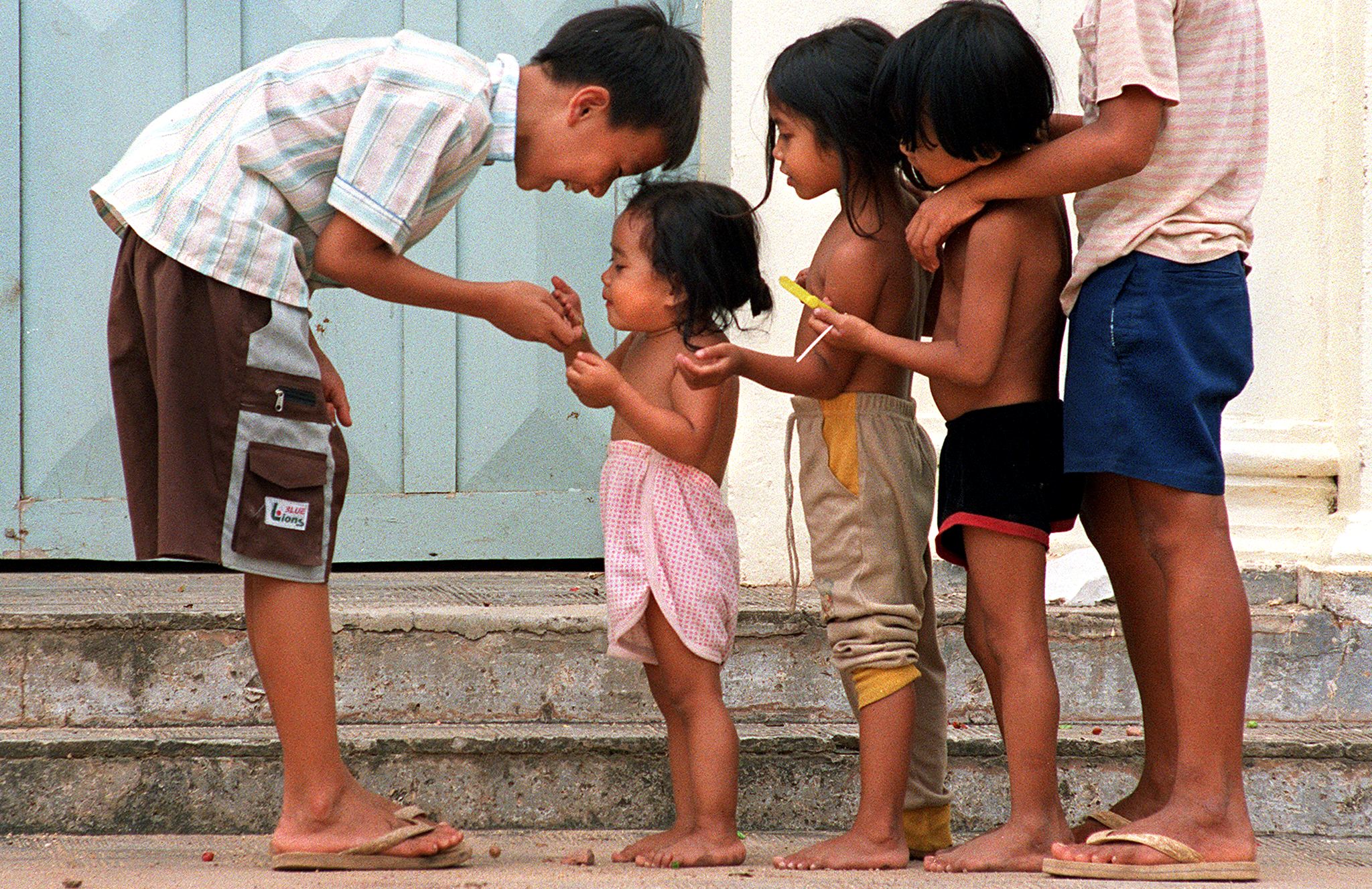A lady took Jane* to Kampong Thom Orphanage in a car when she was just a few days old. No, someone found Jane as a baby left in between two factories near Monivong Bridge in Phnom Penh. No again, her mother passed away eight hours after she was born and nobody reclaimed her at the hospital.
These are the three stories that Dutch adoptive mother Meta Meulenbelt-Hörz was told about her adoptee daughter’s origins. Which one of these tells the truth, nobody knows.
“We knew there was something untold about our daughter’s story, but we could never find out the truth,” Meulenbelt-Hörz said.
Jane is now 21 and living in the Netherlands with her adoptive parents and her adoptee Chinese brother. And she is just one of the thousands of Cambodian children who were given to international adoption between 1980 and 2010. Most of those children, now adults, have never known their real origins – how they ended up in an orphanage or if their birth parents are still alive and searching for them.
Today, it can be a matter of just a few more months before international adoptive families from Italy will again be able to bring Cambodian children home.
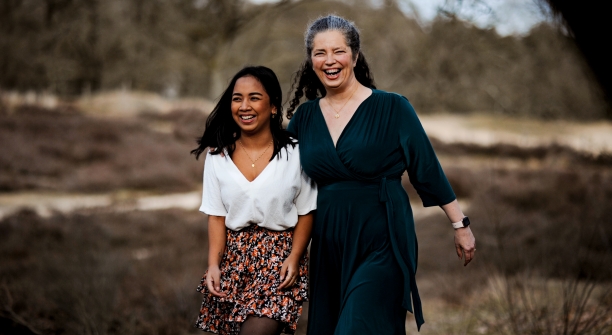
After halting all the procedures in 2009 due to corruption and human trafficking allegations, Cambodia removed the ban on inter-country adoption in 2014. However, the country only made solid steps towards full reopening in mid-2022 by resuming discussions with the Italian government. Countries including the U.S., U.K., France and Australia banned adoptions from Cambodia in the early 2000s and have not shown interest in resuming them so far, deeming Cambodia not yet ready to fully align with international child protection standards.
But Italy never halted the procedures from its side. Instead, it has been at the forefront of bilateral discussions with local authorities throughout the entire time, aiming at resuming adoptions as soon as allowed.
In January 2023, according to the official website of the Italian Commission for Inter-Country Adoption – the central authority under the government – there are still nine pending adoptions from Cambodia with three organisations: CIFA Onlus, Comunità di Sant’ Egidio ACAP and Lo Scoiattolo ONLUS. Among them, only the latter confirmed with the Globe that its two pending proceedings are currently suspended until further notice.
“2023 is the year,” said Michele Torri, inter-country adoption representative at Amici Dei Bambini, one of the eight Italian organisations awaiting to be authorised to resume inter-country adoptions from Cambodia. “We are so close to receiving the final green light from the Cambodian inter-country adoption authority, that we can almost safely say that the authorised bodies can start preparing to resume new adoption procedures from Cambodia within the next few months.”
However, according to Torri, the Italian commission has opened up “in a cautious and controlled manner”, allowing only a limited number of annual adoptions, and only for children with special healthcare needs. That is to effectively monitor every process from beginning to end, as well as verify the legitimacy of each step, he said.
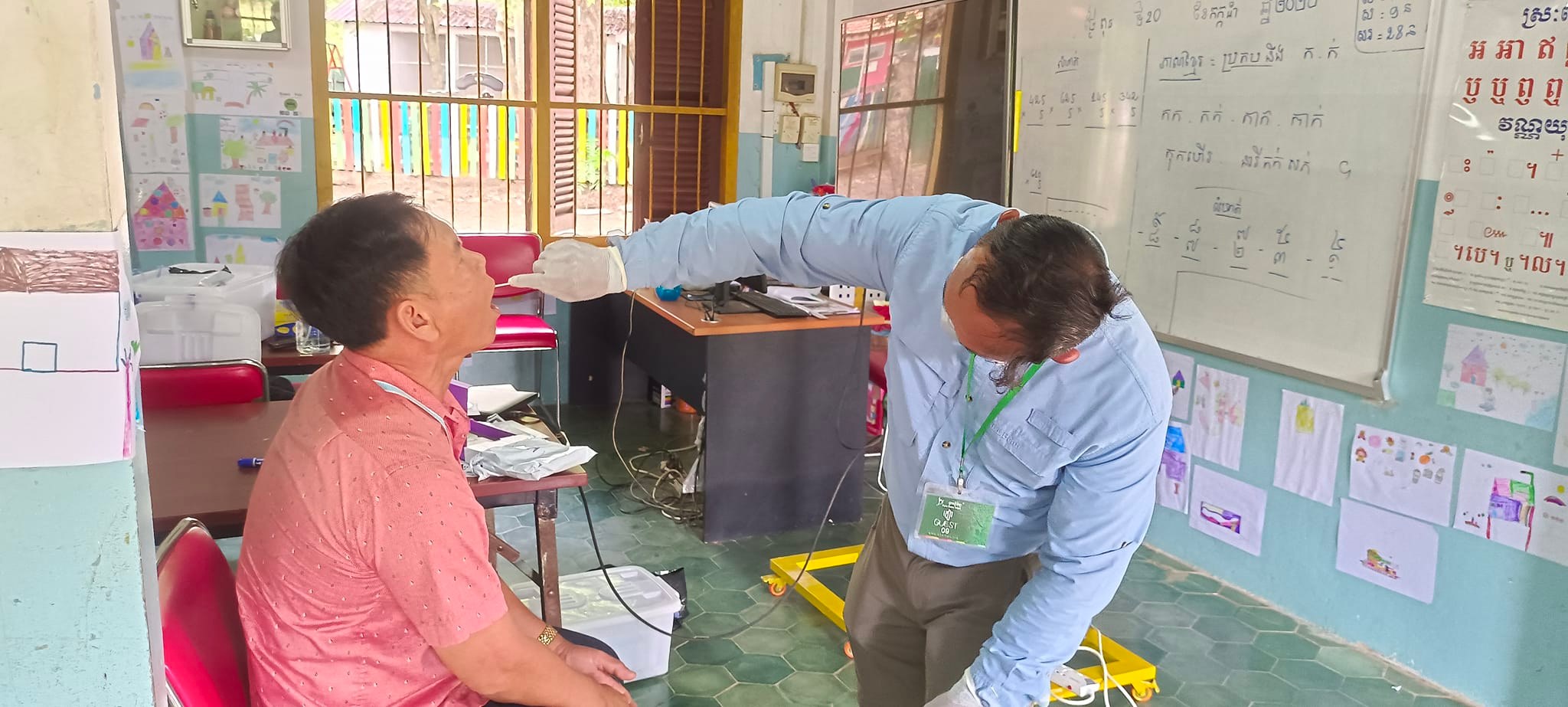
In early 2000, international investigations uncovered a major corruption scandal linked to an alarmingly high number of Cambodian children given to international adoption without the authorisation of their birth parents with forged documents stating false orphan status, as well as altered names and ages.
Despite signing the Hague Convention on Protection of Children and Cooperation in Respect of Inter-Country Adoption in 2007 and passing the Law on Inter-country Adoption in 2009, Cambodia’s child protection system failed to align with international standards. A decade later, the government, supported by UNICEF, developed updated procedures for domestic adoptions. In the end, these were never finalised due to the disruption of Covid-19.
With the same objective, UNICEF recently also supported the Ministry of Social Affairs Veterans and Youth Rehabilitation to draft a child protection law that regulates adoption. This, once passed, will fill some of the main existing gaps in the process and procedures, such as the establishment of an inter-country adoption registry, UNICEF communication specialist Bunly Meas explained to the Globe.
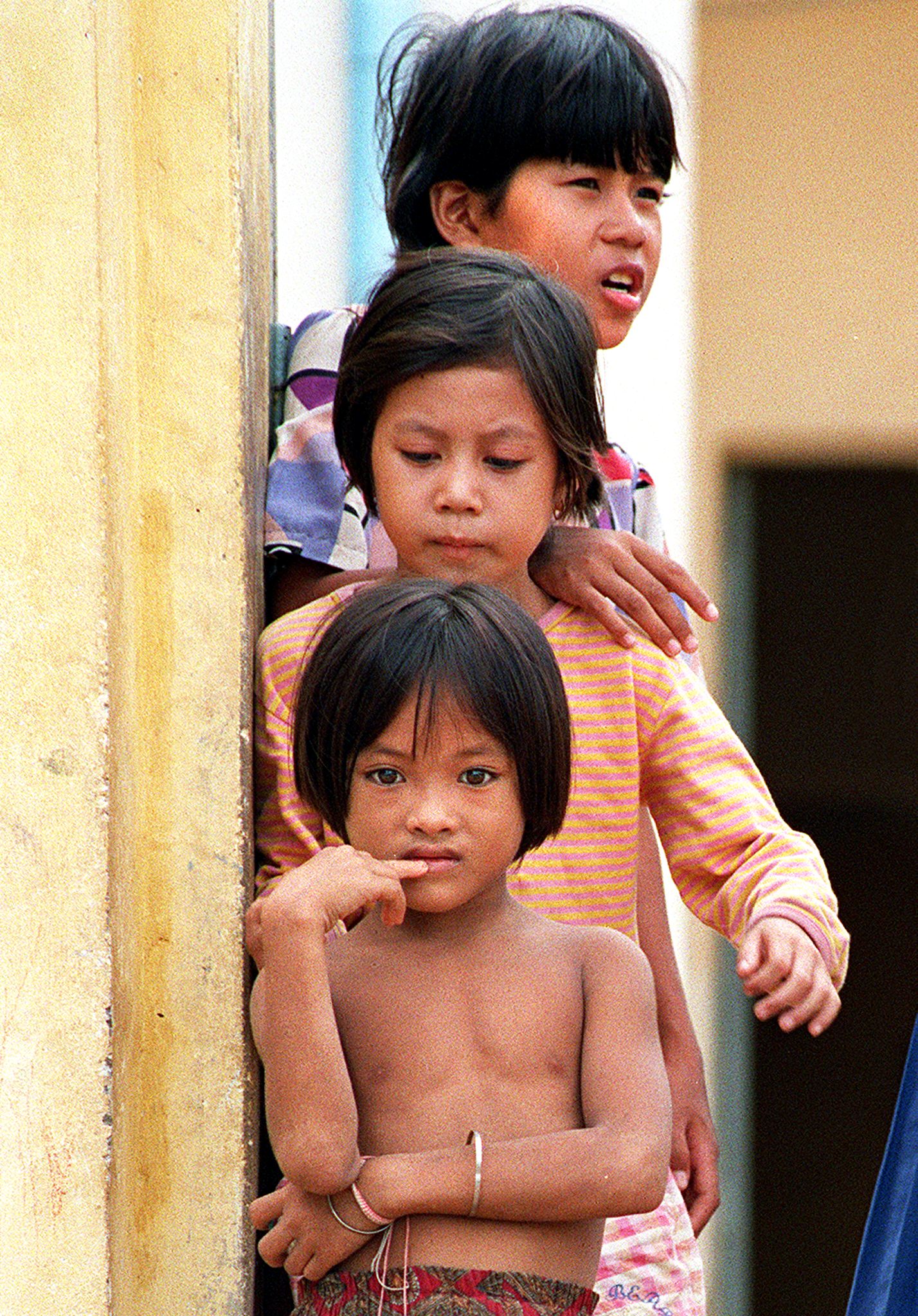
While this legislation is enough to convince Italy that Cambodia is ready to safely resume inter-country adoption, the lack of transparency about the new mechanisms and procedures remains a reason for concern among child protection and human rights organisations.
Cambodian rights group Licadho has been following government developments on the subject and working with families who have lost children to illegitimate international adoption procedures. Through that, the group’s outreach director Naly Pilorge doesn’t believe it’s possible for Cambodia to guarantee that international adoptions won’t be marred by the same fraud and corruption as past adoptions.
“Cambodia has barely acknowledged past abuses – there have been no meaningful investigation or prosecutions,” Pilorge said. “No assistance has been provided to help birth families or adopted children who are still suffering.”
Pilorge also stressed that the Cambodian government and related institutions still rank among the world’s lowest for perceived corruption and weak rule of law. That would make it close to impossible to ensure children’s best interests, she believes.
“In the current context, it is unthinkable that Cambodia would seek to restart intercountry adoptions, and unconscionable that countries such as Italy would risk infringing on children’s rights by participating in such a reopening,” Pilorge said.
In response to critics, Torri argued that although there are and always will be risks connected to these procedures, adoption authorities should evaluate a broader set of conditions.
“The choice is to either close everything down, take zero risk, and go with the easy way out leaving the minors in institutions without giving to even one of them the chance to find a permanent family, or to take on the risk and activate the mechanisms even where the total guarantees are not yet entirely ready in practice,” Torri said.
But a lack of transparency is what also makes several academics sniff at the effectiveness of the new regulations. Patricia Fronek, social worker, researcher and associate professor at Griffith University who published several works on the alternative care system in Cambodia, even alleged that “adoptions of children with special needs kept going even after the ban in 2009”, and an unknown number of children have been sent abroad since then.
The central agency for inter-country adoption did not respond to comments. UNICEF reported being “not aware of any recent case of international adoption”, although there is no official register despite the child protection law containing provisions for its establishment. To make up for this lack, the Ministry of Social Affairs has recently adopted the use of a UNICEF-backed case management system that collects such information, “but there are no measures for monitoring, reporting and family linking after adoption,” Bunly reported.
But regardless of the bureaucratic procedures and improvements of safety measures on a national level, families and children across Cambodia and around the world are still searching for their blood relatives and seeking answers.
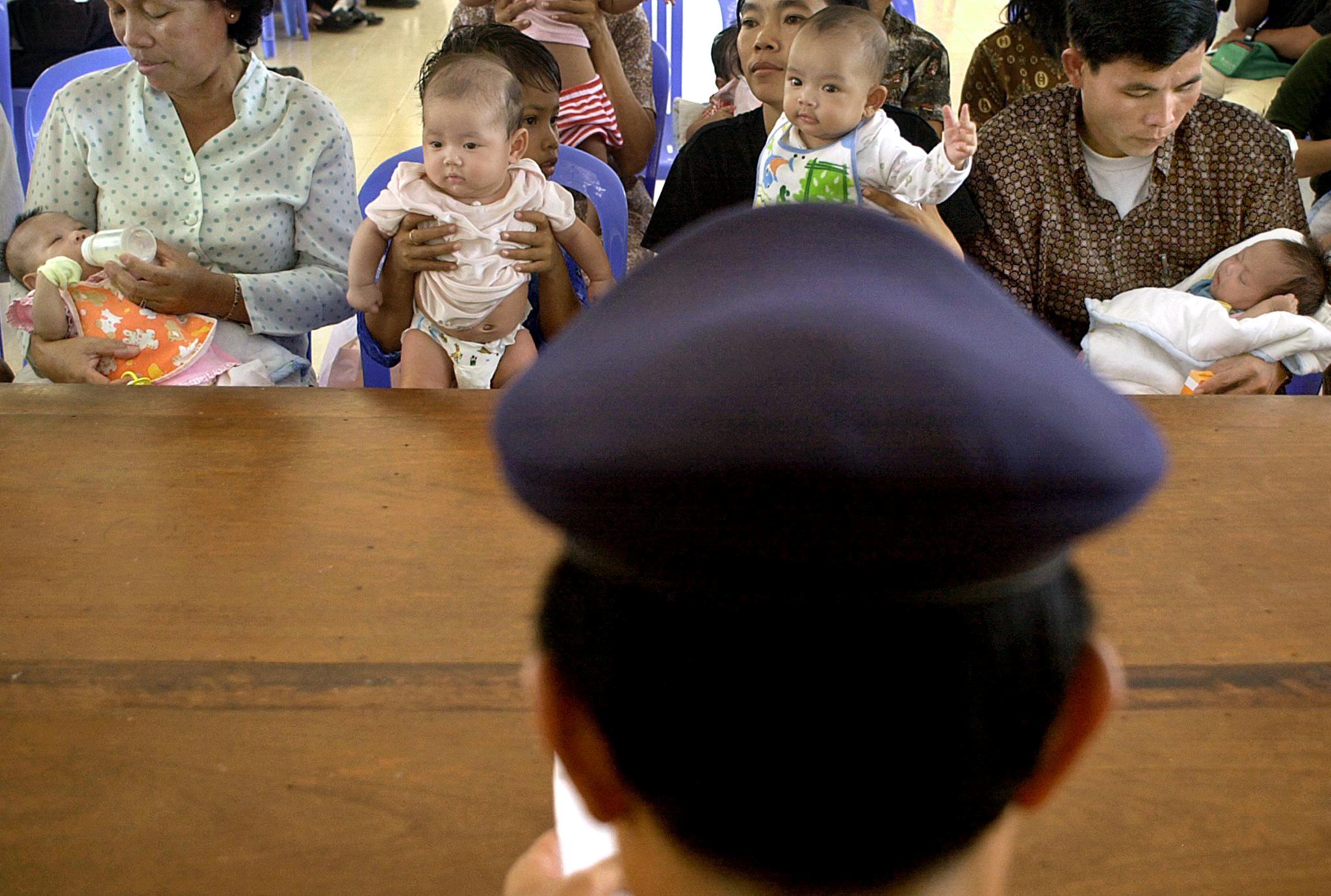
Meulenbelt-Hörz and her husband adopted Jane in 2002 when the child was one year old. Her birth certificate states “mother and father unknown”, and an approximate estimate of her birth date is October 2001.
Because the Cambodian government had no unified adoption registry at the time, Jane and her parents failed in their attempt to find her birth parents through an official documentation search. Jane had then no other choice but to rely on DNA tests.
During her second trip to Cambodia, in 2019 she and her family stuck hundreds of flyers around the factories where she was allegedly abandoned. Soon after, two families went forward and took DNA tests. Neither resulted in a match, but that DNA marked the first step toward the establishment of DNA Cambodia. The databank project works in partnership with local non-governmental organisation KFCO, which helps to reunite families separated through war, genocide and poverty.
To date, there are more than 300 DNA profiles in this project stored within the MyHeritage and Family Tree Databases.
While all adoptions before the ban were organised by independent facilitators rather than through agencies or organisations, now, all international adoptions must be handled by government-authorised agencies. Unauthorised private companies and orphanages are no longer allowed to handle global adoptions directly.
But neither Meulenbelt-Hörz nor Fronek believe that such an improvement will change their contrariety in inter-country adoption. Fronek sees the strengthening of the national foster care system as the only effective and safe solution to the deinstitutionalisation of abandoned or orphan children.
“If the foster care system is strong, children can find a permanent and secure home right away, without ever living in an institution,” she said.
Deinstitutionalisation is also the objective of U.S.-based non-profit organisation HOLT International, which has been piloting domestic adoptions in Cambodia with government support and working on strengthening foster care across the country, explained Thoa Bui, vice president of programs and services.
“We really don’t want to see children age out in orphanages,” she said.
Lynelle Long, founding director of InterCountry Adoptee Voices, a global network of inter-country adoptees, who was adopted from Vietnam as a child and now lives in Australia, sees foster care as a more suitable and safer option for orphan or abandoned children. While, from a legal perspective, adoption is a private transaction – once successful, no government or NGO has the right or duty to check up on the children – foster care remains under the control of the government. That way, the safety of children in foster care is constantly ensured by government-authorised entities.
“Adoptee children very often end up in abusive households in foreign countries,” Long said. “Nobody is making sure they are safe and healthy once they are adopted. While those in foster care are checked upon and have always the chance to report the abuse to their country’s central authority”
She, like thousands of other adoptees, also experienced isolation and racism in their communities, as well as a lack of understanding by their adoptive parents.
“Adoptive parents often struggle to understand what their adoptee children go through,” Long said. “They are from a different cultural background and do not know how to handle the psychological burden on their adoptee kids.”
Meulenbelt-Hörz, also agreed that adoption should be avoided at any cost.
“After seeing what hardships my kids have gone through, I am not favourable to adoption anymore,” she said. “All children involved in adoption are children with trauma.”
*Jane’s real name has been withheld for privacy reasons
